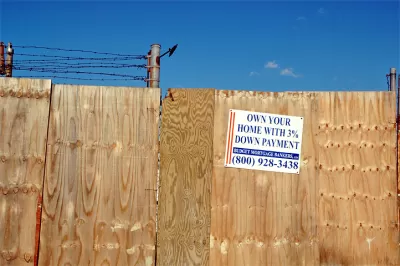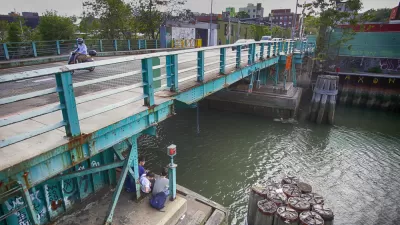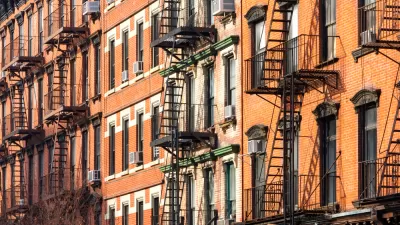As the supply of affordable housing in Gowanus continues to diminish, a new coalition demands that any rezoning plan fill the gaps.

As New York considers extending its rezoning efforts to the largely industrial neighborhood of Gowanus, non-profits have convened the Gowanus Neighborhood Coalition for Justice to represent the needs of low-income tenants and residents of public housing.
A new report by the nonprofit Fifth Avenue Committee found that 33 percent of housing in Gowanus is affordable — but those numbers are declining. Between 2007 and 2014, the number of rent-stabilized apartments dropped 22 percent in Gowanus, Boerum Hill, Carroll Garden and Park Slope thanks to market-rate development in those areas. That compares to a 6 percent drop citywide.
To counteract these trends, the coalition demands that "any rezoning, large land use action or public investment" be organized around five basic principles:
1. Advance racial and economic justice
2. Create real affordable housing and protect tenants from displacement
3. Promote environmental justice
4. Protect local businesses where we work and shop
5. Uplift the culture and community of long-time residents
Strategies to meet these goals—including workforce development, community policing, and racial desegregation—are outlined in the statement.
Gowanus community groups have advocated protections for longtime residents and small businesses since at least fall 2016, with the launch of the Bridging Gowanus community planning process.
FULL STORY: Gowanus lost 22% of its rent-stabilized housing between 2007 and 2014: study

Alabama: Trump Terminates Settlements for Black Communities Harmed By Raw Sewage
Trump deemed the landmark civil rights agreement “illegal DEI and environmental justice policy.”

Study: Maui’s Plan to Convert Vacation Rentals to Long-Term Housing Could Cause Nearly $1 Billion Economic Loss
The plan would reduce visitor accommodation by 25% resulting in 1,900 jobs lost.

Planetizen Federal Action Tracker
A weekly monitor of how Trump’s orders and actions are impacting planners and planning in America.

Wind Energy on the Rise Despite Federal Policy Reversal
The Trump administration is revoking federal support for renewable energy, but demand for new projects continues unabated.

Passengers Flock to Caltrain After Electrification
The new electric trains are running faster and more reliably, leading to strong ridership growth on the Bay Area rail system.

Texas Churches Rally Behind ‘Yes in God’s Back Yard’ Legislation
Religious leaders want the state to reduce zoning regulations to streamline leasing church-owned land to housing developers.
Urban Design for Planners 1: Software Tools
This six-course series explores essential urban design concepts using open source software and equips planners with the tools they need to participate fully in the urban design process.
Planning for Universal Design
Learn the tools for implementing Universal Design in planning regulations.
Caltrans
Smith Gee Studio
Institute for Housing and Urban Development Studies (IHS)
City of Grandview
Harvard GSD Executive Education
Toledo-Lucas County Plan Commissions
Salt Lake City
NYU Wagner Graduate School of Public Service





























